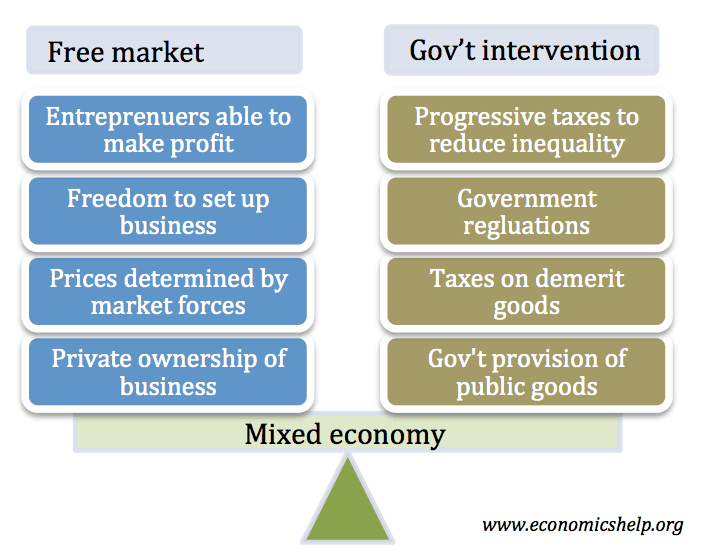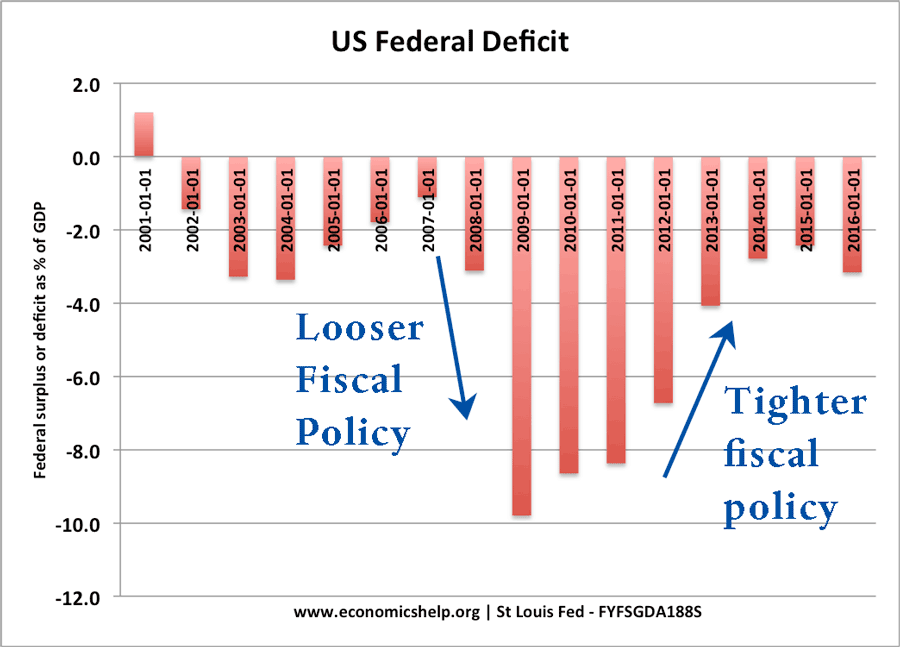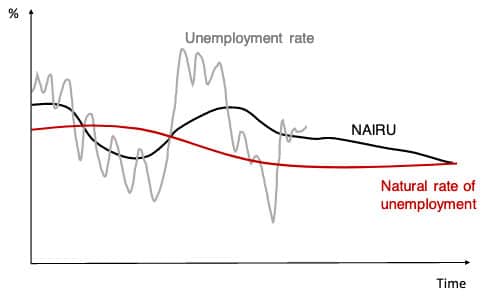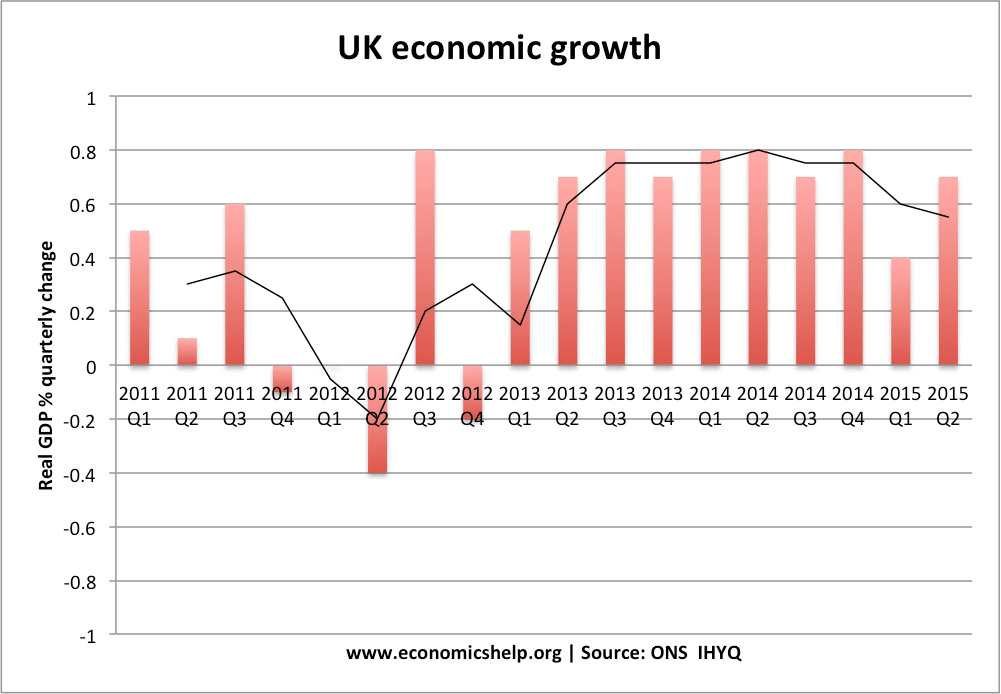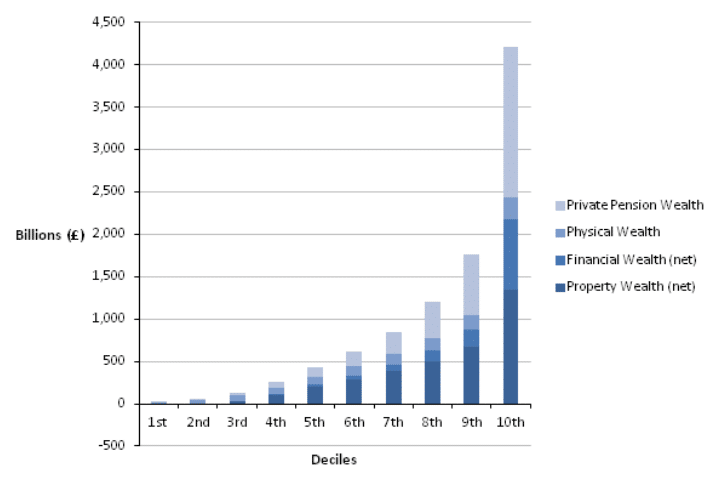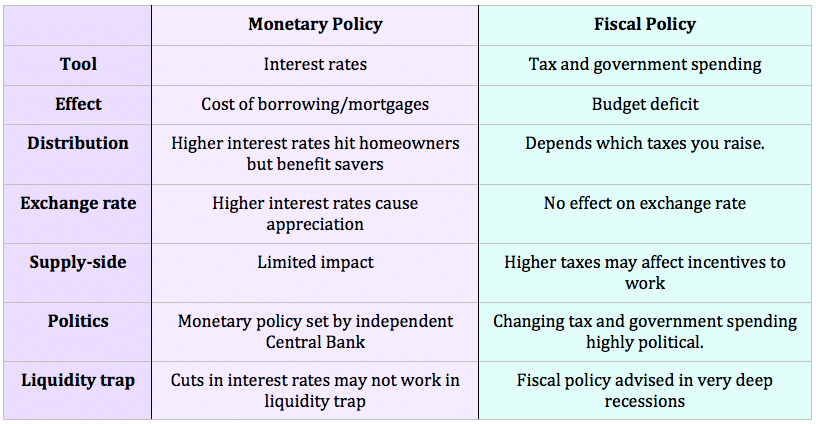Mixed economy
Definition – A mixed economy means that part of the economy is left to the free market, and part of it is managed by the government. Mixed economies start from the basis of allowing private enterprise to run most businesses. Then the governments intervene in certain areas of the economy, such as providing public services …

